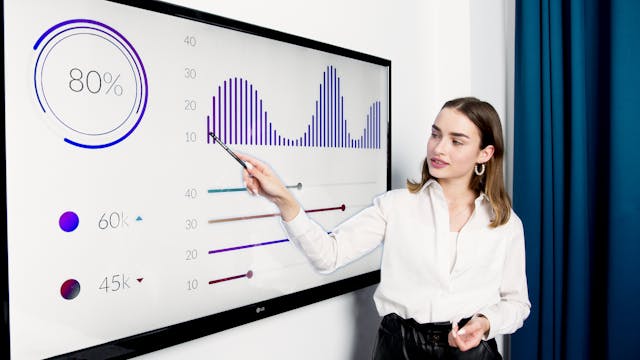Managing the finances for your rental properties can feel like juggling a dozen balls at once—rent payments, maintenance costs, taxes, deposits, and more. If you’ve been relying on spreadsheets, or worse, a pile of receipts and sticky notes, it’s time to consider property accounting software. The right tool won’t just organize your finances; it will simplify your life and help you make smarter decisions.
Here’s how to find the perfect software and how it can transform the way you handle your rental property finances.
1. Keep Track of Rent Payments Easily
Rent collection is the backbone of property management. Yet, many landlords still track payments manually, making it easy to lose track of late payments or partial payments. Property accounting software automates the rent collection process. Most tools come with features that let you set up automatic rent reminders, track payment history, and even allow tenants to pay online.
You’ll no longer need to chase tenants for checks or worry about recording payments correctly. Everything is automatically logged and accessible in a clear, easy-to-understand format. Plus, many platforms generate real-time reports that show who’s paid, who’s late, and how much rent you’ve collected at any given moment.
2. Manage Expenses Without the Hassle
Owning rental properties means regular expenses—maintenance, repairs, utilities, and more. Manually tracking these costs can lead to mistakes, and those mistakes can cost you during tax season or when you’re calculating your profitability.

Property accounting software lets you enter expenses in real-time. For example, if you had to pay a plumber for an emergency repair, simply enter the amount into your system or scan the receipt. The software will automatically categorize the expense and add it to your monthly or yearly expense report.
You’ll have a clear picture of where your money is going, which means you can make more informed decisions about where to cut costs or reinvest.
3. Stay Organized During Tax Season
Tax time is often a nightmare for property owners, especially if you have multiple properties or complex tax situations. Manually calculating deductions, organizing receipts, and filling out forms can be overwhelming.
Property accounting software makes tax season painless. Many platforms are designed to track deductible expenses, calculate depreciation, and even generate tax-friendly reports. Instead of scrambling for documents, you’ll have everything ready to hand over to your accountant—or to use yourself if you file your own taxes.
Not only will this save you time, but you’ll also avoid costly mistakes, like missing out on deductions or filing late.
4. Monitor Cash Flow with Real-Time Reporting
Cash flow is key to keeping your rental business healthy. You need to know, at any given time, how much money is coming in and how much is going out. Doing this manually can be a headache, but property accounting software gives you real-time insights into your cash flow.
With the right software, you can generate cash flow reports that show exactly where your money is coming from and where it’s going. You can even break down reports by property, tenant, or time frame. This means you’ll always have a clear picture of your financial health, allowing you to make better decisions about expenses, investments, or even rent increases.
5. Simplify Security Deposits and Refunds
Handling security deposits can be tricky. You need to track how much you collected, where the money is held, and when it needs to be refunded. If you’ve got multiple tenants, this can quickly become a logistical mess.
Property accounting software can help you stay on top of security deposits. You can record when the deposit was collected, track any deductions for damages, and set reminders for when refunds are due. When it’s time to return the deposit, you’ll have all the information you need, making the process smoother for both you and your tenants.
6. Integrate with Other Tools You’re Already Using
The right property accounting software doesn’t exist in a vacuum. It should integrate seamlessly with other tools you’re using, like property management platforms, payment processors, or even your bank account. This allows for automatic syncing of financial data, reducing the need for manual entry and minimizing errors.
For instance, if your software syncs with your bank account, it can automatically record rent payments or expenses directly from your bank statement. This level of integration not only saves time but also ensures that all your financial data is accurate and up-to-date.
7. Streamline Communication with Tenants
Financial disputes often arise from miscommunication between landlords and tenants. Maybe a tenant thinks they paid their rent on time when they didn’t, or they’re unclear on why they were charged for a repair. Good property accounting software helps eliminate these misunderstandings by providing clear records of all transactions.
Many platforms allow tenants to log into a portal where they can view their payment history, upcoming rent due dates, and any charges for maintenance or utilities. This transparency makes it easier to resolve disputes and ensures that everyone is on the same page when it comes to finances.
8. Scale Your Rental Business with Ease
If you own just one or two properties, keeping track of your finances might feel manageable. But what happens when you scale up? Suddenly, you’re dealing with more tenants, more expenses, and more headaches. What worked when you had two units doesn’t hold up when you have ten.
That’s where property accounting software shines. As your rental portfolio grows, the software scales with you. You can easily add new properties, track additional tenants, and monitor larger expenses without losing control of your finances. The software keeps everything organized and accessible, no matter how large your business gets.
9. Save Time and Eliminate Manual Data Entry
Time is money, especially in property management. If you’re spending hours each month entering data, reconciling bank statements, and tracking down receipts, you’re losing time that could be spent growing your business or finding new tenants.

With the right software, most of these tasks are automated. Payments, expenses, and even tax reporting can be handled by the system, reducing the need for manual data entry. You’ll free up your time for more important tasks, like building relationships with tenants or improving your properties.
10. Choose the Right Software for Your Needs
Not all property accounting software is created equal. Some tools are designed for large property management companies, while others are perfect for small landlords with just a few units. The key is to find software that fits your specific needs.
Look for tools that offer the features that matter most to you. If you’re focused on cash flow, find a platform with detailed reporting capabilities. If you’re tired of manually collecting rent, prioritize software with online payment options. And if you manage multiple properties, look for software that makes it easy to track income and expenses for each one separately.
The right property accounting software takes the guesswork and frustration out of managing your rental finances. With automation, real-time reporting, and streamlined tax preparation, you’ll stay organized and avoid costly mistakes. Investing in the right tool now can save you countless hours and headaches down the road, freeing you up to focus on growing your business and keeping your tenants happy.
